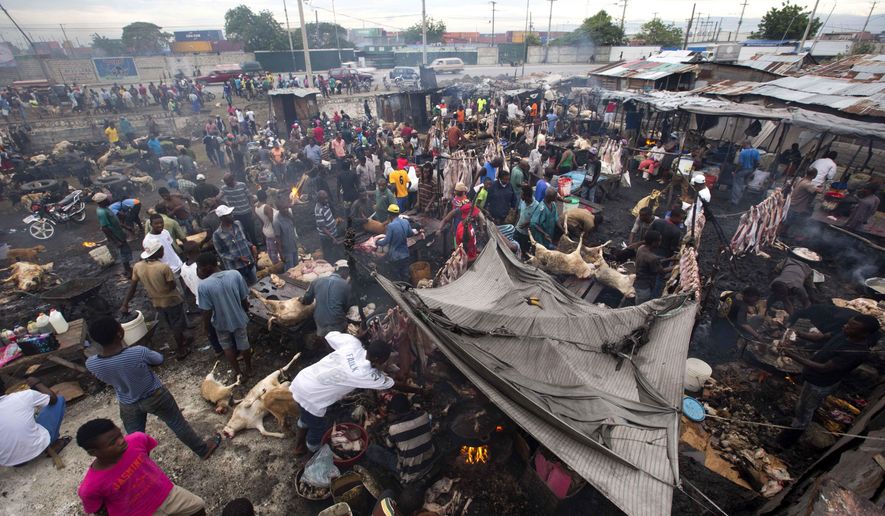OPINION:
Some countries truly are sh—holes — and that’s why the citizens who live there want to come to America so badly.
Of course, we can’t take everyone who wants to come. Our country would be overrun.
We have to manage the flow of immigration.
So it’s only sensible to base border policy on which potential incomers provide the most benefit to this nation at-large — who provides the best bang for the buck. That’s not racist; that’s realism. And Democrats know it, too. They’re just too politically desperate and vile to refrain from using a remark reportedly made by President Donald Trump for twisted partisan gain.
Still, the left’s angry contortions and faux outrage spins to paint Trump as a racist, post-reported “sh—hole” remark, shouldn’t detract from the larger truth that goes like this: Yes, indeed, some nations are cesspools of misery. And calling them out for their cesspool nature isn’t exactly a shocking reflection.
Google images of Haiti, for instance, and what pops are photos of trashy beaches, overcrowded dwellings, debris-strewn neighborhoods — real sh—hole-seeming places, in other words.
No doubt, some of these images come courtesy of the fallout from Hurricane Matthew, a Category 5-er that struck near Les Anglais as a Category 4 storm in mid-2016, killing more than 500 and devastating the already impoverished region. But that truth doesn’t detract from the fact that the nation was already a massive mess, economically speaking.
The Heritage Foundation’s 2017 Index of Economic Freedom opens its assessment of Haiti this way: “Haiti, the Western Hemisphere’s poorest and most deforested country, is plagued by corruption, gang violence, drug trafficking, organized crime and a general lack of economic opportunity.”
Don’t just take the conservative-leaning think tank’s word on it. In 2004, the United Nations sent troops to one Haiti shantytown to battle it out with gangs; in 2016, Haiti was rated in a Gallup analysis as one of the countries with the highest amount of “suffering,” with high poverty and low opportunity.
Sh—hole? That’s certainly one way to describe it.
Here are some other countries that might be considered similarly: South Sudan and Ukraine, both rated alongside Haiti as worst places to live in Gallup’s 2016 analysis. Then there’s China and North Korea, for obvious despotic reasons. And scores of Africa nations rated in the United Nations-backed 2017 World Happiness Report as subpar in terms of rating the levels of economic opportunities, individual freedoms, health, poverty or corruption.
And, listen up, amnesty supporters: Just because those from downtrodden nations may have a desire to come to America to live, doesn’t mean America should automatically grant them that wish. It’s not pragmatic. It’s not sustainable. It’s not even in line with how other nations, how other governments, conduct their own border business.
America’s government has a responsibility to secure the future of its own citizens first — and sorry, so sorry, anti-Trumpers of the world: That’s. Not. Racism.
Neither, by the way, is calling a sh—hole country a sh—hole country. It may be bad form; it may be impolite. But racist? That it ain’t. It’s what we all know and say to be true about some sad and unfortunate countries — albeit, using different terminology — and it’s why most Americans feel so blessed to be American in the first place.
__
Cheryl Chumley can be reached at cchumley@washingtontimes.com or on Twitter, @ckchumley.




Please read our comment policy before commenting.